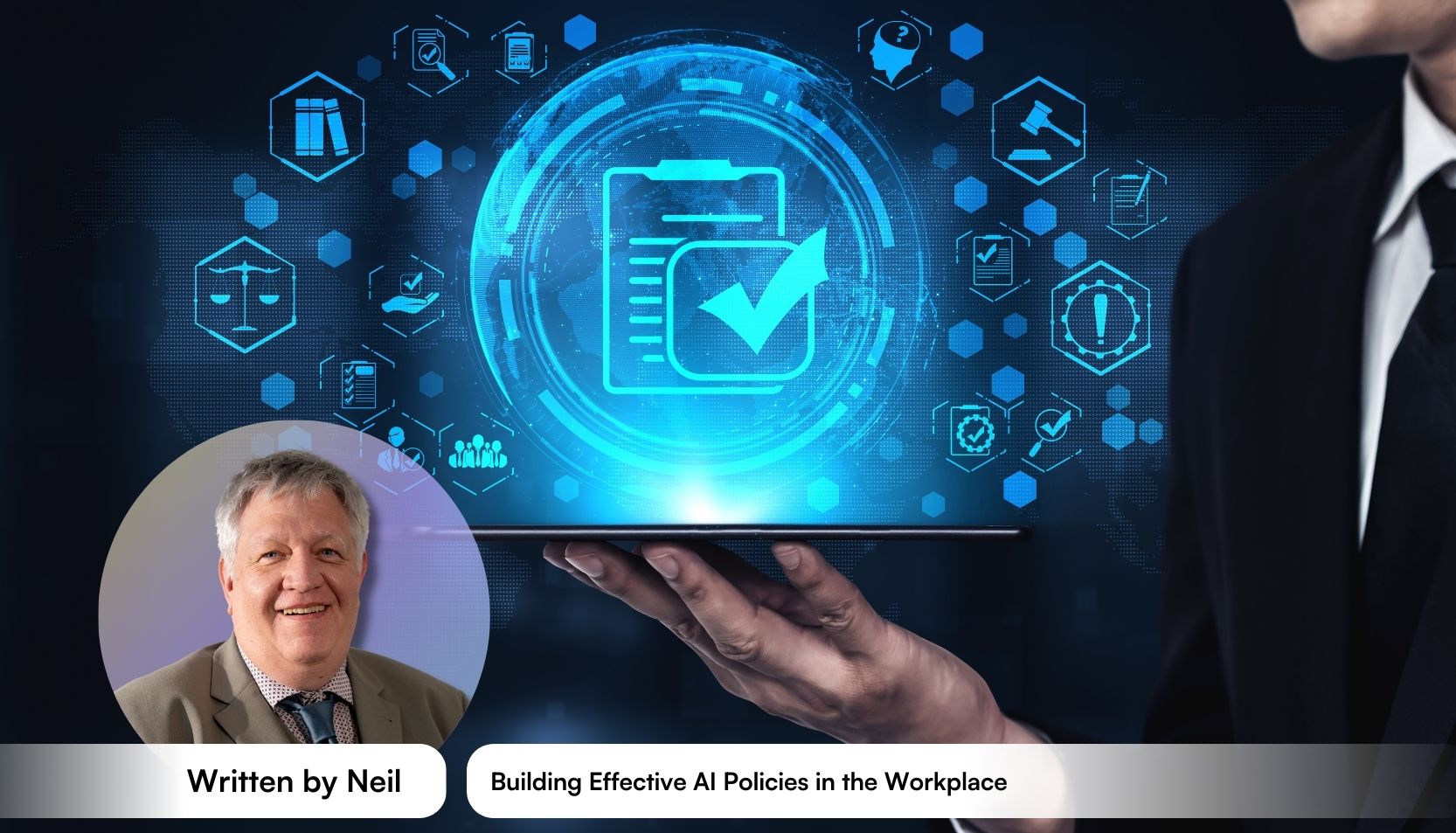

By Neil, SYTECH Quality Manager
The rise of artificial intelligence (AI) in the workplace brings new opportunities, but it also introduces new challenges. Businesses using AI technology must now manage issues related to data security, risk management, intellectual property, and compliance with laws and regulations. Without clear guidance, companies risk exposing confidential information, mishandling sensitive information, or breaching data protection laws.
As AI becomes increasingly embedded into daily operations, especially with the growth of generative AI and AI-powered tools, it is essential to create policies that not only regulate AI usage, but also support responsible innovation. A well-designed AI policy protects businesses, educates employees, and ensures long-term resilience.
AI can greatly enhance productivity. AI systems can automate repetitive tasks, generate content, summarise reports, and even assist in decision making. However, if left unmanaged, AI can introduce serious risks.
Issues businesses face include:
Understanding the risks is the first step. Only with this awareness can organisations build effective AI policies that protect them, their employees, and their customers.
An AI policy should be practical, accessible, and flexible enough to adapt to new developments. Here are the essential components every organisation should include:
Start by defining the aim of the policy. Clarify that it is designed to guide the AI usage within the organisation, protect sensitive information, uphold compliance obligations, and manage potential risks.
Specify which systems, platforms, and processes fall under the policy. Include guidance for both company-approved tools and third-party services employees may access independently.
Outline what employees can and cannot do with AI-powered tools. For example:
Setting these boundaries helps maintain data integrity, minimise errors, and reduce risk.
AI policies must be tightly aligned with existing data security and data protection laws. Make it clear that employees must not share sensitive information or protected data with AI platforms unless authorised through secure channels.
If a business uses cloud-based or third-party AI systems, it should ensure that the provider meets all relevant compliance standards for data security.
Including employees in the conversation about protecting data when using AI reinforces the importance of maintaining professional standards.
The use of generative AI raises complex intellectual property questions. Who owns content generated by an AI tool? Can outputs from AI that trained on third-party materials be freely used?
Businesses should provide clear guidance on:
Taking proactive steps ensures businesses protect their own assets and avoid infringing on the rights of others.
With the introduction of regulations like the EU AI Act, organisations must actively monitor changes in the legal landscape surrounding AI.
Effective policies should commit the business to ensuring compliance with all current and future laws and regulations. This may involve:
Staying ahead of legislation helps businesses avoid penalties and reputational damage.
Even the best policies are useless if employees are unaware of them. Successful implementation depends on including employees in the journey towards safe and ethical AI usage.
Provide regular training on:
Empowering staff helps build a culture of shared responsibility for managing AI technology effectively.
An AI policy should not stand alone. It must align with the company’s broader risk management strategy.
Identify specific risks related to AI usage, such as:
Use this risk profile to inform AI policy decisions, prioritise mitigation measures, and guide employee behaviour.
By embedding AI management into the wider risk framework, businesses can respond faster to emerging threats and maintain operational resilience.
While much focus is rightly placed on controlling risk, it is important that AI policies do not become overly restrictive. The goal should be to enable safe, responsible innovation, not stifle creativity.
An effective AI policy should encourage employees to:
By framing AI policies as enablers rather than barriers, businesses can build a positive relationship between people and technology.
Artificial intelligence is evolving rapidly. New AI systems, advances in generative AI, and updates to laws and regulations are inevitable.
Businesses should commit to reviewing their AI policies at least annually, or more frequently if significant changes occur in the technology or regulatory environment.
Agility and foresight will be critical in maintaining effective AI strategies that protect, empower, and advance business interests.
AI is already transforming the modern workplace. With careful planning, businesses can harness the power of artificial intelligence while protecting themselves from its risks.
Building an effective AI policy is a crucial part of this journey. It ensures that AI usage is controlled, confidential information is safeguarded, and compliance with data protection laws and emerging frameworks like the EU AI Act is maintained.
By focusing on risk management, clear rules around sensitive information, and strong employee engagement, businesses can create a future-ready culture that embraces innovation while minimising threats.
In a world increasingly driven by AI-powered solutions, having a clear, effective policy is not just best practice, it is essential for success.